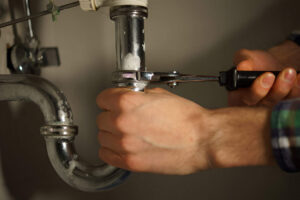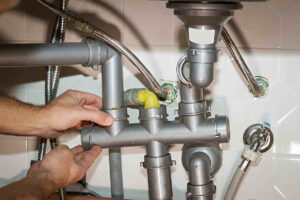How to Find a Plumber for Low Water Pressure Issues
Having low water flow in your home can be annoying and make it hard to do the things you need to do. If you’re having problems with Find, a Plumber for Low Water Pressure can help you figure out what’s causing it and fix it. This will get the water flowing normally again. Finding a plumber in Pasadena can be hard, but a Pasadena expert can help you get your low water pressure fixed quickly. This piece will talk about how to find a trustworthy plumber to fix your low water pressure issues, the most common reasons for these problems, and how to make sure they are handled correctly.
Understanding Low Water Pressure
Find out what low water flow is before you call a plumber. Things that use water, like taps and showerheads, don’t move the water as fast when the water pressure is low. This is clear when taps or showers don’t work or the water flows very slowly. Your kitchen sink plumbing is one place that could be affected. This is because it often shows early signs of pressure problems and may need professional help.

Common Causes of Low Water Pressure
You may flow in your home for several reasons. If you know what’s wrong, you can find the right Pasadena plumber to fix it. Many people do it for these reasons:
- Clogged Pipes: It is possible for mineral layers, rust, and other debris to accumulate in your pipes over time, which will cause the water to travel more slowly.
- Faulty Pressure Regulator: A defective pressure valve may cause water to flow at an uneven pressure, which can lead to low pressure.
- Leaking Pipes: It is conceivable that the quantity of water flow in some regions of your home will be decreased if there is a leak in the pipes. This might happen in certain areas of your home.
- Blocked Valves: Should an entry be partly or blocked, the pace at which water travels through your plumbing system may be slowed down.
- Municipal Supply Issues: There could be a problem with the water that your city provides. Older tech makes this more likely to happen.
How a Plumber for Low Water Pressure Can Help
A skilled plumber can help you figure out what’s wrong with low water pressure and fix it by:
- Identifying the Source of the Problem: Plumbers know how to find the cause of low water pressure, whether it’s the lines. The pressure valve or the water flow from the city.
- Fixing Leaks and Clogs: They may repair or replace damaged pipes and remove any obstructions that may be preventing your water from flowing.
- Upgrading Pressure Regulators: If your water pressure valve is acting up, a plumber can help you out and restore your water pressure to normal in no time!
- Preventing Future Issues: An experienced plumber will not only address the issue at hand but will also provide you with advice and services to prevent the issue from occurring again in the future.
Finding the Right Plumber for Low Water Pressure Issues
When looking for a plumber to fix your low water pressure. It’s important to find one who is skilled, dependable and honest. To help you find the right plumber, follow these steps:
1. Research Local Plumbers
Before anything else, it’s a good idea to check out local plumbers who know how to fix low water pressure. You can find local plumbing companies by checking out search engines and websites that feature plumbers. Here are the two types of resources you can use. It is recommended that you search for plumbers who have a great deal of experience in identifying and fixing problems that are associated with substandard water pressure.
2. Check Reviews and References
A plumber’s reliability may be determined by several methods, one of the most effective of which is by reading reviews and phoning the names of previous customers. You can get evaluations from customers by visiting websites such as Google, Yelp, and Angie’s List. Search for plumbers who have received a large number of positive ratings, particularly those who discuss the process of repairing low water pressure.
3. Ask About Experience with Water Pressure Issues
To make sure the plumber can fix problems like low water pressure, you should ask them about it. It may be too hard for some plumbers to handle. Ask the plumber what might be wrong to make sure they have the tools they need to figure out what’s wrong and fix it quickly.
4. Get Multiple Estimates
Before hiring a plumber, it’s a great idea to gather a few quotes from different options. This helps you understand the right cost for the job and ensures you don’t end up paying more than necessary. A reliable plumber will happily share their prices and provide you with a complete quote before getting started on the job.
5. Verify Credentials and Licensing
Before you hire a plumber, make sure they are licensed and have insurance. Make sure the plumber you hire has the right licenses to work in your area. Different places have different rules about who can be a plumber. If something goes wrong or is broken at work, insurance will protect you.
6. Inquire About Warranty and Guarantees
Find out whether the plumber guarantees their work. A professional plumber should guarantee their work so you don’t have to worry if issues arise.

Tips for Maintaining Optimal Water Pressure
Taking care of your pipes is important so that the low water flow doesn’t happen again after it’s fixed. Checking parts like your plumbing vent pipe on a regular basis can help stop pressure problems and draining problems. Keep your home’s water pressure high by doing these things:
1. Regular Plumbing Inspections
Regularly inspect your pipes for deterioration, leaks, and obstructions that might affect water pressure. Early detection may prevent issues from worsening.
2. Install a Water Pressure Regulator
If your home doesn’t already have one, installing a water pressure monitor can help keep the amount of pressure steady. A plumber can tell you if the valve you have now needs to be replaced or just fixed.
3. Keep Pipes Clean
Stones and dirt can slow the flow of water over time. If you clean your lines often, they won’t get stuck or stopped, which can slow down the flow of water.
4. Fix Leaks Promptly
Even small leaks can make a big difference in how much water flows. You should fix any leaks in your pipes right away so that things don’t get worse.
5. Be Aware of Municipal Supply Changes
When the city changes how much water they send to homes, the flow of water can slow down. Keep an eye out for issues in your area that could impact the flow of water, and if you need to, call your water company.
Conclusion
If your water flow is low, you should get in touch with a plumber right away so that your plumbing system works well. By reading about the most common causes of low water pressure and following the steps above, you should be able to find a reliable plumber who can fix the issue and make sure it doesn’t happen again. The water flow in your home will be strong and steady if you hire the right plumber and do regular maintenance.
FAQs About Plumbers for Low Water Pressure
Q1. What causes my home’s low water pressure?
Clogged pipes, pressure regulators, leaky pipes, and blocked valves may lower water pressure. In regions with obsolete infrastructure, municipal water supply concerns may be to blame.
Q2. How do plumbers remedy low water pressure?
A plumber may examine your plumbing system to determine the source of the problem. They may replace pipes, remove obstructions, install or modify a pressure regulator, or correct leaks, depending on the reason. They may recommend frequent maintenance to avoid future complications.
Q3. Does my low water pressure need a plumber?
Call a plumber if faucets, showers, or appliances have significantly less water flow or irregular water pressure. You may also notice faucet leaks or water-using appliance performance issues.
Q4. Can I repair low water pressure?
You can check for blocked faucet aerators yourself, but low water pressure is usually a more complicated problem that needs professional help. Plumbers have the skills and equipment to diagnose and treat the issue.